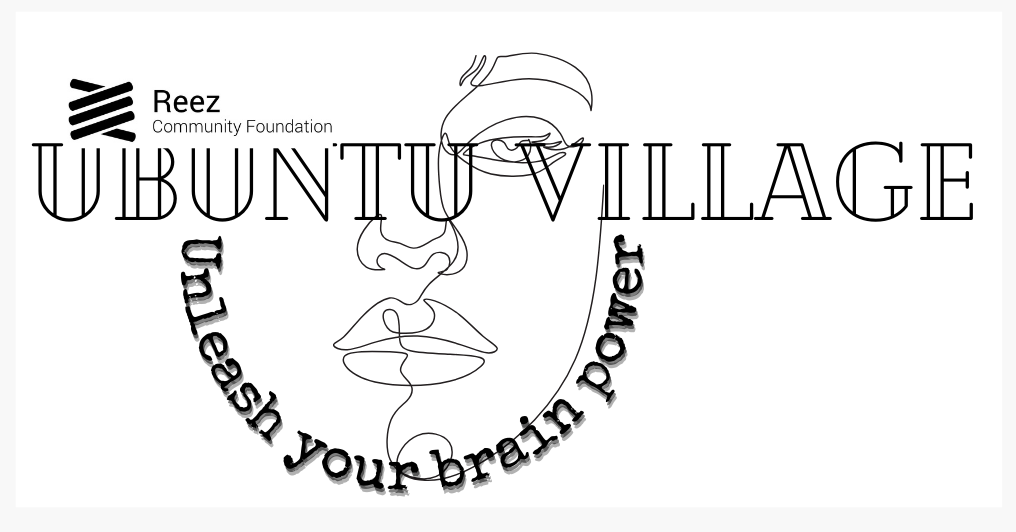Our mission at Reez Community Foundation includes improving access to justice and economic empowerment by fostering economic resilience through increasing worker ownership business model. This was heavily influenced by entrepreneurship experiences in the immigrant community and possibly a good number of the over 200 home based businesses in St. Albert. Like the home based businesses, some immigrant communities are actively engaged in varying types of solo businesses that are growth challenged. Although, they are deriving subsistence living from their efforts they continue to persevere with it because they were often into this business ownership due to unemployment or unemployment. For these individuals, one could say they have become adept at dealing with the type of economic insecurities that most Albertans have been experiencing in increasing numbers since late 2014.

As an Albertan and an immigrant business owner, I wondered why worker ownership business model was not mentioned or promoted by both the economic development and business planning professionals that crossed my path over the course of my business ownership in the last 5 years or so. As such, I have always thought the structural options available for two or more people getting together to form a business were limited to partnerships or limited liability incorporation. The Canadian Worker Coop Federation defines a worker coop as:
“businesses that are owned and democratically controlled by the members. The main purpose of a worker co-operative is to provide employment for its members through operating an enterprise that follows the Co-operative Principles and Values. When new employees join the business, after a successful probationary period they are encouraged to apply for membership. The worker co-op is, in principle, designed to provide benefits not just to the founding members but also to all future employee/members” and the community.
Worker coop is clearly different from conventional business model where the primary aim is to make profit for the owners who may or may not be employed by the business. By its very nature of being a cooperative, the need of a viable and fulfilling employment along with a share of the profit or loss of the business forms the basis of the relationship as members combine their skills, interests and experiences to achieve mutual goals. The business model promises to allow the hundreds of home-based and other types of solo business owners with common interests to pool their resources to achieve their mutual goals of employment, with increased potential of achieving more together than they are currently able to do on their own: attaining economic security.
Worker cooperatives can be a self sustaining economic development strategy because of these three powerful impacts:
-
They can potentially create high quality locally rooted jobs;
-
They can potentially democratize wealth and address inequality; and
-
They can potentially build skills and leadership among workers who traditionally have limited access to training and development opportunities.
See http://usaskstudies.coop/research/impact-of-co-ops-and-credit-unions.php. – For University of Saskatchewan’s Study of Cooperatives’ report on the impact of Coops and Credit Unions
Naturally, to be successful, like any other business, the coop must have a marketable product, start up capital, plan for organization and growth, advised the Federation. This often means that successful worker coop provide services or products that the community needs. It further suggest that the owner workers democratically determine the details of how their organization will be managed. Alif Partners, a management consultancy based in Edmonton, considers itself “the first of its kind worker cooperative in Alberta” (www.alifpartners.com). The number of worker-owned businesses  or coop is still very limited in Alberta, but more widespread in terms of scale in Quebec, some European countries and Latin America. According to the The Cooperative Growth Ecosystem project report, scale refers to the size of individual cooperatives, the density of worker coop in a region and their impact on a community or industry”.
or coop is still very limited in Alberta, but more widespread in terms of scale in Quebec, some European countries and Latin America. According to the The Cooperative Growth Ecosystem project report, scale refers to the size of individual cooperatives, the density of worker coop in a region and their impact on a community or industry”.
The Cooperative Growth Ecosystem Project report is the result of a one year long joint project by Citi Community Development, Democracy at Work Institute and Project Equity. In their view, worker coop models exemplifies an inclusive economic development in action. Communities across the United States interested in growing the worker coop models are encouraged to apply the ecosystem framework in community with the support of Democracy at Work and Project Equity, if required.
[symple_heading style=”” title=”Our Influences” type=”h1″ font_size=”” text_align=”left” margin_top=”15″ margin_bottom=”15″ color=”undefined” icon_left=”” icon_right=””]
Apart from the Cooperative Growth Ecosystem Project report, Reez Community Foundation’s coop initiative has been heavily influenced by related activities in the United States. Our approach has been modeled after the following coop:
- Sustainable Economies Law Center (www.theselc.org) based in Oakland, California.
- Grassroots Economic Organizing blog (www.geo.coop)
- Arizmendi Association of Cooperatives is a network of worker owned bakery cooperative (www.arizmendibakery.coop). It was founded in 1995, now has six cooperatives, built on the experiences gained by “The Cheese Board” Collective 1971 cooperative efforts. Two lessons applied: firstly, attempting to develop expertise in many different kinds of businesses was labour intensive and increased chances of failure. Secondly, the more a cooperative needs help, the less they are likely to pay for it and get it. Hence, the focus on one industry bakery and reject fee-for service model for support services provided for percentage of profit approach. Their cooperative model also takes advantage of the high competition for decent paying food industry jobs in their area, and till now makes a lot of the early business decisions for the new coop before members are recruited.
- Women’ Action to Gain Economic Security (WAGES), a network of professional eco-friendly cleaning worker-owned coop in the San Francisco Bay Area of California (prosperacoops.org). Hilary Abell, Executive Director from 2003 to 2011 has this to say about their incubation process: “…which we have honed and improved overtime, requires 3 to 4 years of intensive investment and produces a mature co‐op that can sustain itself for the long haul. The 6 to 12 month pre‐launch phase includes business planning, recruitment and training for founding members, partnership development, capital procurement for the co‐op, and fundraising for WAGES’ development efforts. Once the co‐op opens, WAGES works closely with the members
to actively grow and develop the business for approximately 3 years. During this time, a “development team” of WAGES staff members, including a co‐op manager, a trainer, and a technical advisor, provides 4 services that we have found to be critical for long‐term success:
- Recruitment and training for founders and new member groups, plus continuing member education programs and facilitation of member meetings.
- Technical assistance on legal, financial and business issues.
- Management services: Funding the General Manager’s position and helping him or her be a successful coop manager throughout the incubation period and beyond.
- Policy and governance: providing a policy framework for the coop and sitting on its board of directors, together with elected worker-owners, to help ensure business success, sustainability, and mission fulfillment.
- With more coop in our network WAGS is developing a suite of shared business services such as payroll and benefits administration, quality assurance and marketing
Thus, a co-op development model begins, with recruitment and education. WAGES finds potential cooperative members through networks of community workers, social service agencies, and through its own educational outreach programs. Once potential members are identified, they are invited to apply for membership, and the education and training begins. Before WAGES opens a new cooperative, the members are expected to complete 150 hours of training, and contribute $400 in start up membership fees. The training hours and start up fee are often difficult for low-wage working mothers, but they function to eliminate the uncommitted, and to foster camaraderie among those who complete the process. Plus, Abell says, they find ways to help potential members save for the membership fee through training stipends, or through payroll deduction once the cooperative is up and running.
Furthermore, “the model, by design, provides initial control to WAGES and the co‐op board, on which
WAGES occupies the majority of seats during the incubation period (WAGES’ role significantly decreases after incubation). While counterintuitive to many in the co‐op world, this arrangement exists for one reason only: to further WAGES’ and the co‐ops’ common mission of creating healthy, dignified jobs for low‐income women. WAGES has found through 15 years of continuous improvement of the model that the advantages of not reinventing the wheel and moving more quickly towards sustainable job creation outweigh the disadvantages of less member control. In fact, members seem to experience greater “empowerment” by having a full schedule, time to care for their families, a voice in the workplace, and control over a small number of key decisions, than by having to shoulder the full burden of bringing a start‐up business to stability. At its best, WAGES’ model combines ongoing member participation and learning with rapid business growth and a transition to greater member control as the business matures.” … http://geo.coop/node/635
——————————————————————————————————————–
 Ufuoma (who-fo-ma) Odebala-Fregene is the co-founder and Executive Director of Reez Business Solutions Inc. (www.reezimmigration.com). She is an experienced legal professional with extensive background in Canadian immigration law, policy and practice; entrepreneurship and human rights compliance.
Ufuoma (who-fo-ma) Odebala-Fregene is the co-founder and Executive Director of Reez Business Solutions Inc. (www.reezimmigration.com). She is an experienced legal professional with extensive background in Canadian immigration law, policy and practice; entrepreneurship and human rights compliance.
In addition to her work with individual clients, Ufuoma is the host, researcher and publisher of the immigrant compass podcast (www.theimmigrantcompass.com). In the past she worked with Race Equality Commission of England & Wales and its replacement organization, the Equality and Human Rights Commission of England and Wales. In this role she engaged extensively with UK’s local government and health organizations on their change management and organisational development efforts through the use of equality and human rights impact assessment tools.
Ufuoma is a founding member of Savanna Skills Corporation now trading as Reez Community Foundation. Reez is an organization dedicated to alleviating poverty by fostering just and economic resilient communities by building capacity to attain career self-reliance through focused actions on employment, education, volunteering and ultimately self- employment with particular emphasis on worker-owned businesses (www.reezcommunity.org). She is also a Steering Committee member of the Edmonton Financial Empowerment Collaborative, an Executive member of BLM Yeg & Area and a member of the Church of Jesus Christ and Latter Day Saints. The common message in all her efforts is to make progressively tangible positive improvements towards resilience in the lives of those around her, her communities and herself. She can be reached on twitter @ufuomaof or by email: fregene@shaw.ca. For a consolidated glimpse of Ufuoma’s ongoing projects, please visit www.ufuomaofregene.com

